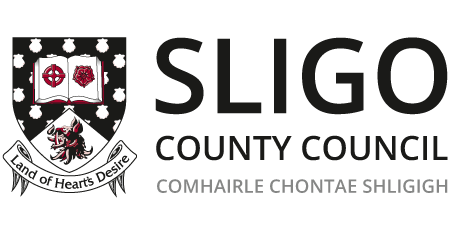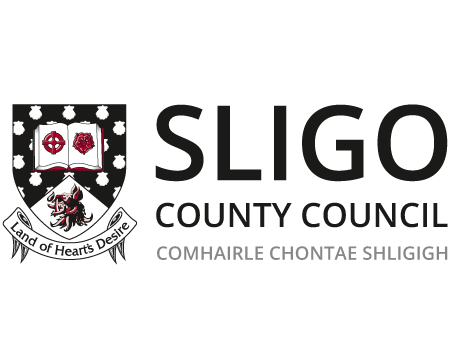Dangerous Substances Licences
DANGEROUS SUBSTANCE REGULATIONS 2019
The following Regulations have been signed into law in December 2019 and are in force since the 1st April 2020:
- Dangerous Substances (Flammable Liquids and Fuels Retail Stores) Regulations, 2019 (S.I. No. 630 of 2019)
- Dangerous Substances (Flammable Liquids and Fuels Distribution and Commercial Supply Stores) Regulations, 2019 (S.I. No. 631 of 2019)
They repeal and replace the Dangerous Substances (Retail and Private Petroleum Stores) Regulations, 1979 (S.I. No. 311 of 1979) and the Dangerous Substances (Petroleum Bulk Stores) Regulations, 1979 (S.I. No. 313 of 1979).
These Regulations make several changes to the petroleum sector, to increase safety standards for employees, the public and the environment.
The Regulations are broader in scope than the 1979 Regulations and include diesel, as well as other ‘alternative fuels’ such as electricity, hydrogen, biofuels, synthetic and paraffinic fuels, compressed natural gas (CNG), liquefied petroleum gas (LPG) and liquefied natural gas (LNG).
While diesel is not combustible at ambient temperatures, it can be an environmental hazard. As such, it should be subject to the same controls as other flammable liquids. In addition, where diesel is co-located with more flammable liquids, it may also become a hazard if those combust. The legislation that provides for this is the Dangerous Substances Act 1972 (Part IV Declaration) Order 2020 (S.I. No. 147 of 2020)
Given the significant changes between the 1979 Regulations and the 2019 Regulations the Department of Enterprise, Trade and Employment (DETE) has made available a document of Frequently Asked Questions (FAQ) to assist stakeholders with the new regulatory regime.
ROLE OF THE LOCAL AUTHORITY UNDER THESE REGULATIONS
Sligo County Council as the licencing authority has a role in relation to the licensing, inspection and prosecuting breaches of licences under the Dangerous Substance Act, 1972 and Dangerous Substances Regulations, 2019.
The following premises must have a licence granted by the licencing authority:
- All retail and kerbside stores which store flammable liquids and fuels for the purpose of sale or supply to the public.
- All distribution and commercial supply stores which hold flammable liquids and fuels for supply or sale to commercial enterprises, for supply to the licensee’s own vehicle or for use in any engine under the licensee’s control.
Local Authorities charge a fee for licences under both Regulations which are set out in the Dangerous Substances (Licensing Fees) Regulations, 1979 (S.I. No. 301 of 1979).
APPLICATION PACK
Sligo Fire Service have developed a Dangerous Substance Licence ‘Application Pack’ to assist applicants/ licensees/ owners or operators in making a submission to Sligo Fire Service as the licencing authority.
The pack includes the following:
- Application Form
- Schedule of Prescribed Fees
- Details of the good practice guidelines that must be adhered to
- Details on matters to be included in the Risk Assessment
- Details on matters to be included in the maps & drawings accompanying the Risk Assessment
- Model Form for Electrical Inspection Report
- Model Form for Fuel Dispensing Equipment Inspection Report
- Model Form for Petrol Vapours Emissions Certificate
Application Forms are available on request from Sligo Fire Service (Email: fireoff@sligococo.ie or Telephone 071 911 1404/ 071 911 1402) or alternatively application forms and further information can be downloaded below:
Additional guidance on the documents required to be submitted with the application are detailed in the pages preceding the Application Form.
ROLE OF THE HEALTH AND SAFETY AUTHORITY UNDER THESE REGULATIONS
Under the Regulations for retail stores or commercial stores, the Health and Safety Authority is the ‘Appeals Authority’.
If an owner or operator disagrees with the decision of a licensing authority to not grant a licence, or to apply a condition to a licence, they may make an appeal within 30 days of the date of issue of the licensing authority’s decision to the Appeals Authority – the Health and Safety Authority (HSA), or the District Court in the case of a kerbside store.
Details on how to make an appeal
DEFINITIONS
“Alternative fuels” means fuels or power sources which serve, at least partly, as a substitute for fossil oil sources in the energy supply to transport and which have the potential to contribute to its decarbonisation and enhance the environmental performance of the transport sector, and include, inter alia:
- electricity
- hydrogen
- biofuels
- synthetic and paraffinic fuels
- natural gas, including biomethane, in gaseous form (compressed natural gas (CNG))
- liquefied petroleum gas (LPG)
- liquefied natural gas (LNG)
“Appeals Authority” means the Health and Safety Authority.
“Appropriate Licensing Authority” means the licensing authority with functional responsibilities for the area in which the retail store or kerbside retail store is located, or a licensing authority or group of licensing authorities designated as an appropriate licensing authority, or a body established to act on behalf of a licensing authority or group of licensing authorities and designated as an appropriate licensing authority. An appropriate licensing authority may also be an appropriate fire authority.
“Commercial Supply” means the sale of flammable liquids and fuels to commercial operations, or the supply of flammable liquids and fuels for commercial activities, whether the flammable liquids and fuels are supplied to another person or company or within the same company.
“Fuel” means a flammable liquid or gas, or an alternative fuel, intended for sale or supply to the public for use in engines and vehicles intended for use for transport by air, sea, road or rail.
“Kerbside Retail Store” means a retail store, premises or location where:
- flammable liquids and fuels are stored for the purposes of sale or supply to the public and are dispensed to vehicles that are parked on a public road, whether the dispensing equipment is located on a public footpath or otherwise, or
- the vehicle from which flammable liquids and fuels are transferred to the store is parked on a public road.
“Licensing Authority” means (as may be appropriate) a local authority for the purposes of the Local Government Act 2001 (No. 37 of 2001) (as amended by the Local Government Reform Act 2014 (No. 1 of 2014)) or a harbour authority within the meaning of section 2 (2) of the Act.
“Retail Store” means a place or premises used or intended to be used for the keeping for sale or supply to the public under a licence flammable liquids and fuels for use in the propulsion of a vehicle or the running of an engine of any kind.
ADDITIONAL GUIDANCE
Feedback
I want to leave feedback on this page


